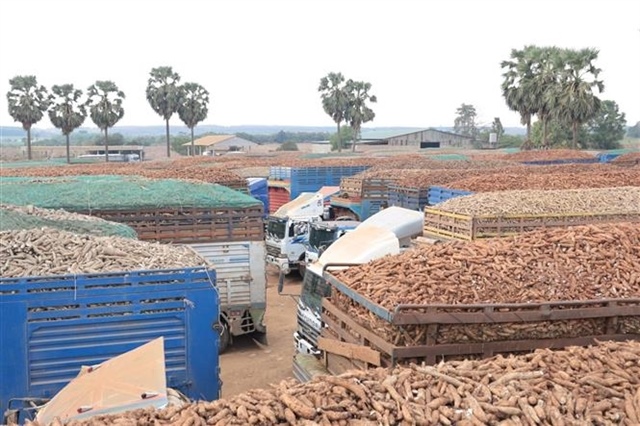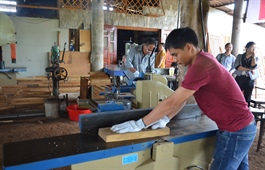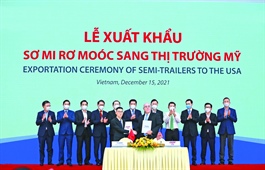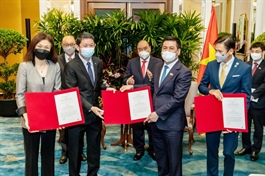Vietnam NA chairman demands supervision of biggest oil refinery amid petroleum scarcity
Vietnam NA chairman demands supervision of biggest oil refinery amid petroleum scarcity
Vietnam holds only a 25.1% stake in the US$9-billion joint venture that marked the participation of two Japanese investors and one Kuwaiti.
Chairman of Vietnam’s National Assembly Vuong Dinh Hue has requested the supervision of Nghi Son Oil Refinery and Petrochemical LLC (NSRP), a joint venture with the participation of two Japanese investors and one Kuwaiti.
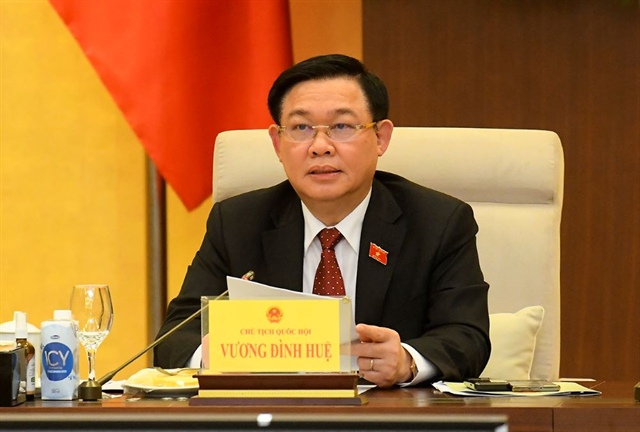
Chairman of Vietnam’s National Assembly Vuong Dinh Hue. Photo: Quochoi |
The NA’s Committee for Finance and Budget, and Committee for Economics are in charge of the supervision, which will focus on operations and financial status.
Under the NA decision, Vietnam Oil and Gas Group (PetroVietnam) is allowed to use part of its post-tax profits to offset the offtake at Nghi Son plant, which has an estimated investment of US$9 billion. The offtake would be checked by the State Audit Office of Vietnam.
The two committees are also responsible for supervising the production, import, and supply status of petroleum products for stable consumption.
From mid-January, Nghi Son refinery reduced capacity due to financial shortage for importing raw materials. The move, according to the Ministry of Industry and Trade (MOIT), largely caused the recent shortage of petroleum supply in the country.
Located in Vietnam’s central beach province of Thanh Hoa, the plant, which became operational in late 2018, met 34% of the country’s petroleum output in 2021.
In its press release posted on its website on January 31, NSRP confirmed that the sponsors approved its immediate funding needs. It means that NSRP will maintain its operations without a possibly lengthy shutdown.
Currently, Nghi Son’s financial difficulties have been temporarily relieved as it is financed to maintain operation until the end of May. The plant is operating at 60% capacity, planned to increase to 80-85% in mid-March, and at full capacity from April, according to MOIT.
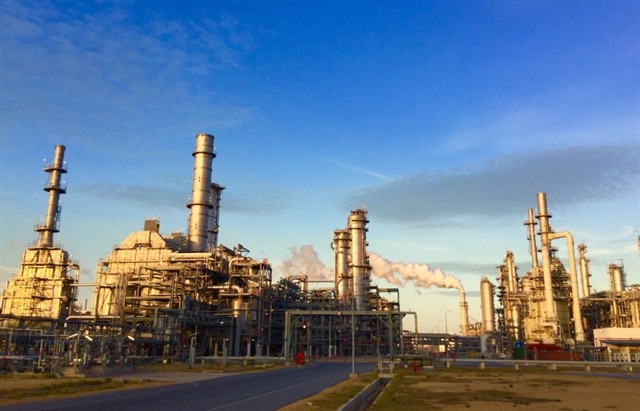
Nghi Son Oil Refinery and Petrochemical LLC (NSRP) located in Vietnam's Central Province of Thanh Hoa. Photo: PetroVietnam |
Controversial operations
Despite benefiting from lots of incentives, Nghi Son plant has worked ineffectively and suffered a cumulative loss of $3.3 billion from 2018 until now and owes $2.8-billion debt to crude oil suppliers, according to MOIT.
The refinery has capacity to process 200,000 barrels of crude oil imported from Kuwait per day (equivalent to 10 million tons per year).
In the joint venture, PetroVietnam holds a 25.1% stake, Kuwait Petroleum Europe B.V. (KPE) from Kuwait 35.1%, Japan’s Idemitsu Kosan Co., Ltd 35.1%, and Japanese Mitsui Chemical Inc. 4.7%.
Regarding preferential tax, the plant, once put into operation, is entitled to a half reduction of corporate income tax or 10% to be paid in 70 years, tax exemption for the first 4 years of taxable income and 50% reduction for the next 9 years, according to VnExpress.
Notably, all products of Nghi Son Refinery will be consumed by PVN for 15 years, with the wholesale price equivalent to the import price at the same time plus the preferential import tax of 3-5-7% (3% for petrochemical products, 5% for LNG, and 7% for petroleum products).
On the other hand, in 10 years (until 2028), if Vietnam reduces import tax to lower than the above preferential rate, PVN will be responsible for compensating Nghi Son Refinery for this difference.
In addition, NSRP’s financial activities and payment for the board of directors are said to be costly, Dan Viet reported.
Economist Vu Dinh Anh questioned the use of imported oil instead of the domestic kind. He was concerned about some uneconomic provisions in the agreement signed between stakeholders, according to Dan Viet.
Meanwhile, lawyer Truong Thanh Duc when being interviewed by VOV fueled some speculation about vested interest in pocketing, causing losses to the state.
Tran Duy Dong, Director of MOIT’s Domestic Market Department said it is time to review the responsibilities of Nghi Son refinery in ensuring petroleum supply and security as the Government and MOIT have created favorable conditions and given it many incentives.





